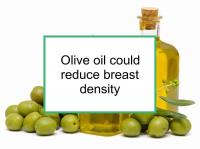Women with mammographically dense breasts have at least four times the risk of breast cancer as those with less dense breasts. Dense breasts have areas with a higher proportion of fibroglandular tissue to fat than normal breasts. Chemotherapy, aromatase inhibitors and tamoxifen all reduce breast density.
In fact, a reduction in breast density during such treatment indicates that the treatment is working and is associated with improved survival. Breast density can also be influenced by certain foods and environmental exposures.
Latest research finds diet is associated with breast density
The study referenced at the beginning of this news article was designed to investigate the association between breast density and diet. The study included 3,548 perimenopausal (close to menopause) and postmenopausal women from seven breast cancer screening programs in Spain.
Food intake was measured using a food frequency questionnaire. The analysis was adjusted for age, body mass index (BMI), calorie intake, protein consumption and other factors.
High caloric intake was found to be associated with higher breast density. Consumption of whole milk was also associated with greater breast density. However, high consumption of olive oil was found to reduce the prevalence of high breast density. Protein and white meat intakes were also found to be inversely associated with breast density.
The authors conclude that breast density is influenced by modifiable dietary factors, such as calorie intake and olive oil consumption.
Please see our article on breast density for more information.
